As the EU edges towards imposing tighter conditions on its payments, BIRN examines the political and economic risks of possible financial sanctions on Hungary.
EU institutions are currently debating the creation of a mechanism that will allow the bloc to suspend its payments to member states over violations of the rule of law. The mechanism is designed specifically for violations that affect the financial interests of the EU – in other words, cases where the EU’s money has been stolen or put to irregular use in a systemic fashion.
While the outcome of the deliberations is uncertain, their target is not. Hungarian Prime Minister Viktor Orbán’s national-conservative government is regarded as the chief offender in rule-of-law violations on account of its reforms to the constitution and to media and electoral law since 2012. Hungary also has the highest percentage of financial irregularities in its handling of funds received from the EU, according to a 2019 report by the European anti-fraud office, OLAF. Companies owned by businessmen friendly with Orbán’s Fidesz party are among the biggest beneficiaries of EU funds in Hungary.
But as the EU works out a mechanism for making its payments to member states conditional upon adherence to the rule of law, it is also confronting its own version of a dilemma familiar to world powers seeking to impose international sanctions. Namely: how to punish a country’s government without punishing the citizens and the opposition?
This story by the Balkan Investigative Reporting Network, BIRN, reveals how financial sanctions could end up harming not just Hungary’s government but also the pro-EU opposition parties that seized control of towns and municipalities across the country in a dramatic election last year. Many of these local governments use EU funding for essential if un-spectacular projects ranging from the maintenance of civic buildings and roads to the renovation of clinics and the provision of housing for impoverished groups such as the Roma.
While the Hungarian opposition overwhelmingly backs EU sanctions against Orbán, it is also bracing for the political fallout from the likely cuts to its budget. “Of course the people will be angry with me if the projects are stopped,” Klára Nyirati, a mayor for the liberal opposition Momentum party in the southern Hungarian town of Baja, told BIRN. “If something goes wrong in a town, it is always the mayor and the head of police who are held responsible. Almost nobody here understands how [local government] projects are financed.”
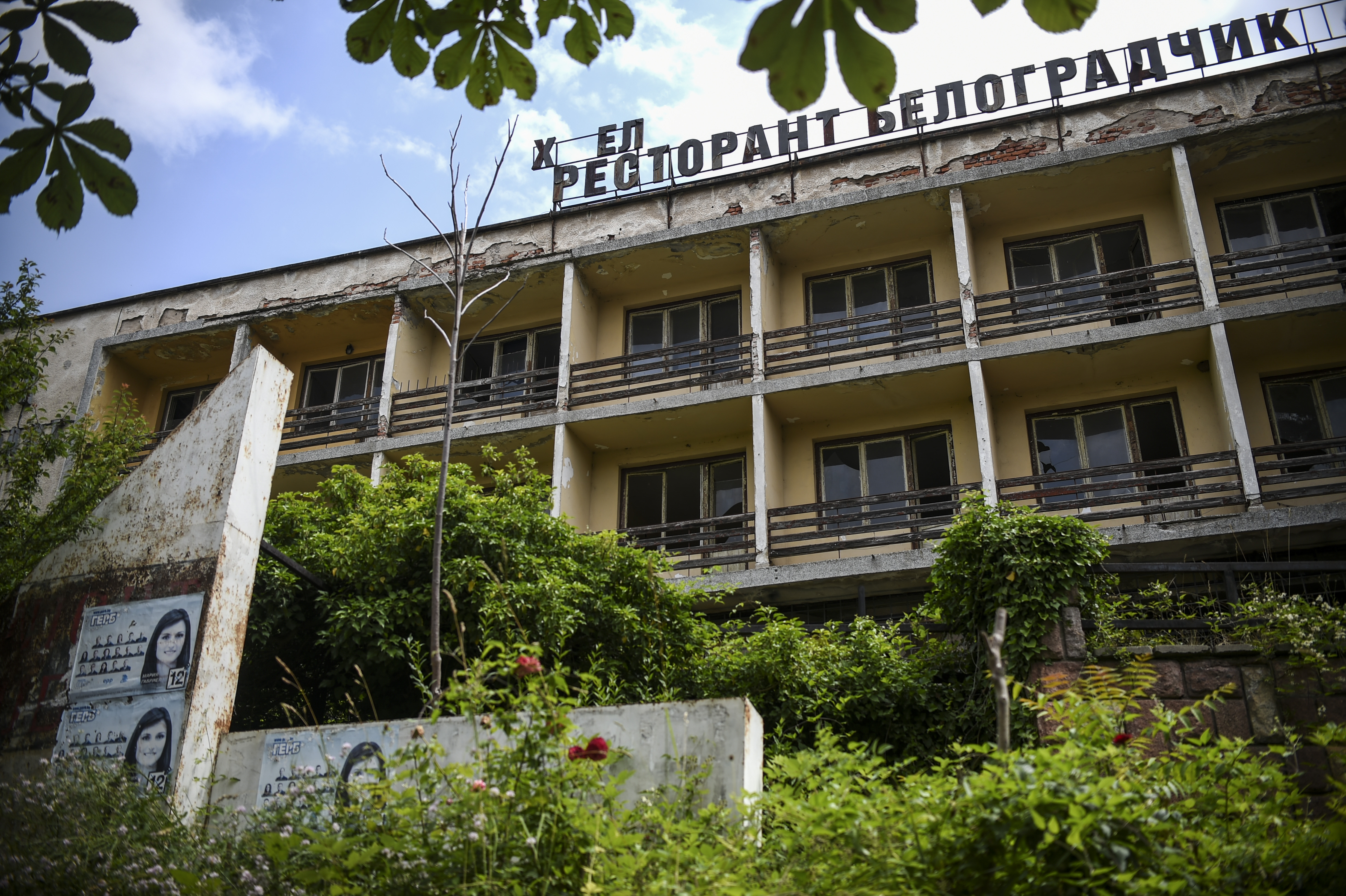
József Baracskai, mayor for the opposition-controlled town of Zalaszentgrót, surveys a property housing Roma families that was due to renovated with EU help. Photo: © Bea Bakó
The blowback from sanctions could moreover dent the EU’s reputation in Hungary. Most Hungarians currently have a favourable view of the bloc. Many also have a favourable view of Orbán – he has, after all, won three elections with a two-thirds majority. “If these people come to view the loss of EU funds as an attack on their elected leader, it could turn the majority against the EU,” István Ujhelyi, an MEP from the opposition Socialist Party, told BIRN. Fidesz has meanwhile said it will resist any attempts to cut its EU funding over alleged rule-of-law violations, describing them as a form of blackmail.
‘We have no plan B’
After ten years of the Orbán administration, the EU is facing up to the problem that its rule-of-law requirements are only effective in countries that are aspiring to join the bloc. Once a country becomes a member state, the EU’s values cannot be effectively enforced there, despite the bloc’s claim to be a “community of values”.
Having tried and failed to thwart Hungary’s illiberal drift with an Article 7 proceeding – the EU’s official and largely ineffectual mechanism for punishing errant member states – the bloc has seized upon financial sanctions as another means of achieving a similar end. The debate over introducing rule-of-law conditionality, as it is known, is taking place as the bloc finalises the details of its next seven-year budget, worth 1.074 trillion euros, and a 750-billion-euro coronavirus recovery fund.
The EU’s budget gives it significant leverage over Hungary. Funding from the bloc currently amounts to more than 3 per cent of Hungary’s annual GDP – one of the highest proportions of any EU member state. A large chunk of this money ends up with local governments. Gergő Medve-Bálint, a political scientist at the Centre for Social Sciences in Budapest, estimated that the country’s local governments received about 5 billion euros from the bloc between 2014-20, comprising between 15-20 per cent of the entire amount that the EU spent on Hungary during that period.

Paediatrician Gyöngyi Hargita, standing at the right, wishes her clinic in Endrefalva had a soundproof door. Photo: © Bea Bakó
EU funding is particularly important for Hungary’s many small municipalities and cities that do not have a well-developed manufacturing or tourism sector. The money raised from local taxes and received from the central government can at best cover everyday running costs in these places, according to István Finta, a lawyer and economist at the Centre for Economic and Regional Studies at the Hungarian Academy of Sciences. “If they cannot apply for EU funding, their opportunity to develop will vanish,” he told BIRN.
Mayor Nyirati from Baja told BIRN she was hoping to apply for EU funding to renovate public areas. The town of 34,000, situated on the River Danube and famed for its fish soup, has an attractive central square, were it not doubling up as a car-park. A few blocks from the historic centre are streets where the cracked paving presents an obstacle course for anyone using a wheelchair or pushing a pram.
A member of the liberal Momentum party, Nyirati was elected in October 2019, ousting a Fidesz administration and inheriting its stack of unfinished EU-funded projects, large and small. She said the EU funding for the larger projects, including a new marketplace and industrial park, was worth around 11-14 million euros – a figure that amounts to roughly half the annual budget for the town. “If the payments from the EU are suspended, we will not be able to finish any of them, we will not have any money for development,” she told BIRN.
In the village of Endrefalva, 110 kilometres north-east of Budapest, the EU has pledged 350,000 euros towards the cost of a new clinic to replace the rundown building currently serving the medical needs of some 1,200 people. With no resident doctor, the existing clinic operates on a part-time basis, staffed intermittently by physicians from the surrounding area.
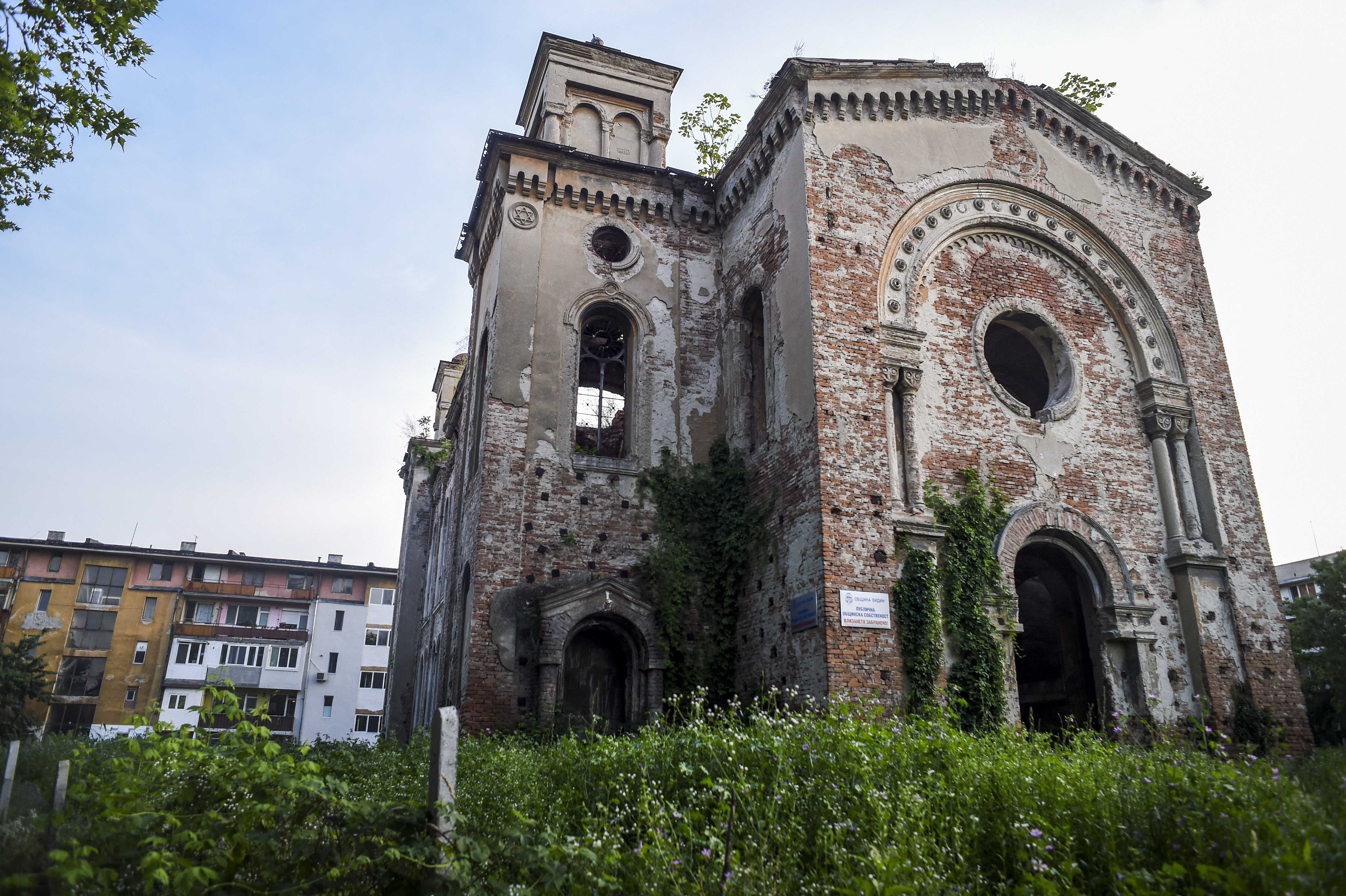
The village of Endrefalva is one of many across Hungary that have relied on EU funds for the maintenance and upgrade of civic facilities. Photo: © Bea Bakó
Financial leverage
Municipal authorities seeking EU funding do not apply directly to Brussels but to the Hungarian Ministry of Finance in Budapest. This arrangement has nothing to do with Orbán’s alleged authoritarianism but is rather standard practice across the EU: most member states channel their funding through a central body.
Once a project has won EU funding, the money for it usually comes out of the member state’s budget, to be replenished later by the EU. “Member states practically pre-finance these projects through their own budget because the European Commission will only pay up after the project is closed and the bills have been sent to Brussels,” Gergő Medve-Bálint, from the Centre for Social Sciences, told BIRN. He added that local governments were often unaware that the “temporary deficit was borne by the central budget”.
Thus the central government acts both as go-between for EU funding applications, and as guarantor of interim funding until Brussels has transferred the money. This system gives the central government the upper hand over local governments in need of funds. Might Fidesz be tempted to use its leverage for political gain if Hungary stopped receiving payments from the EU?
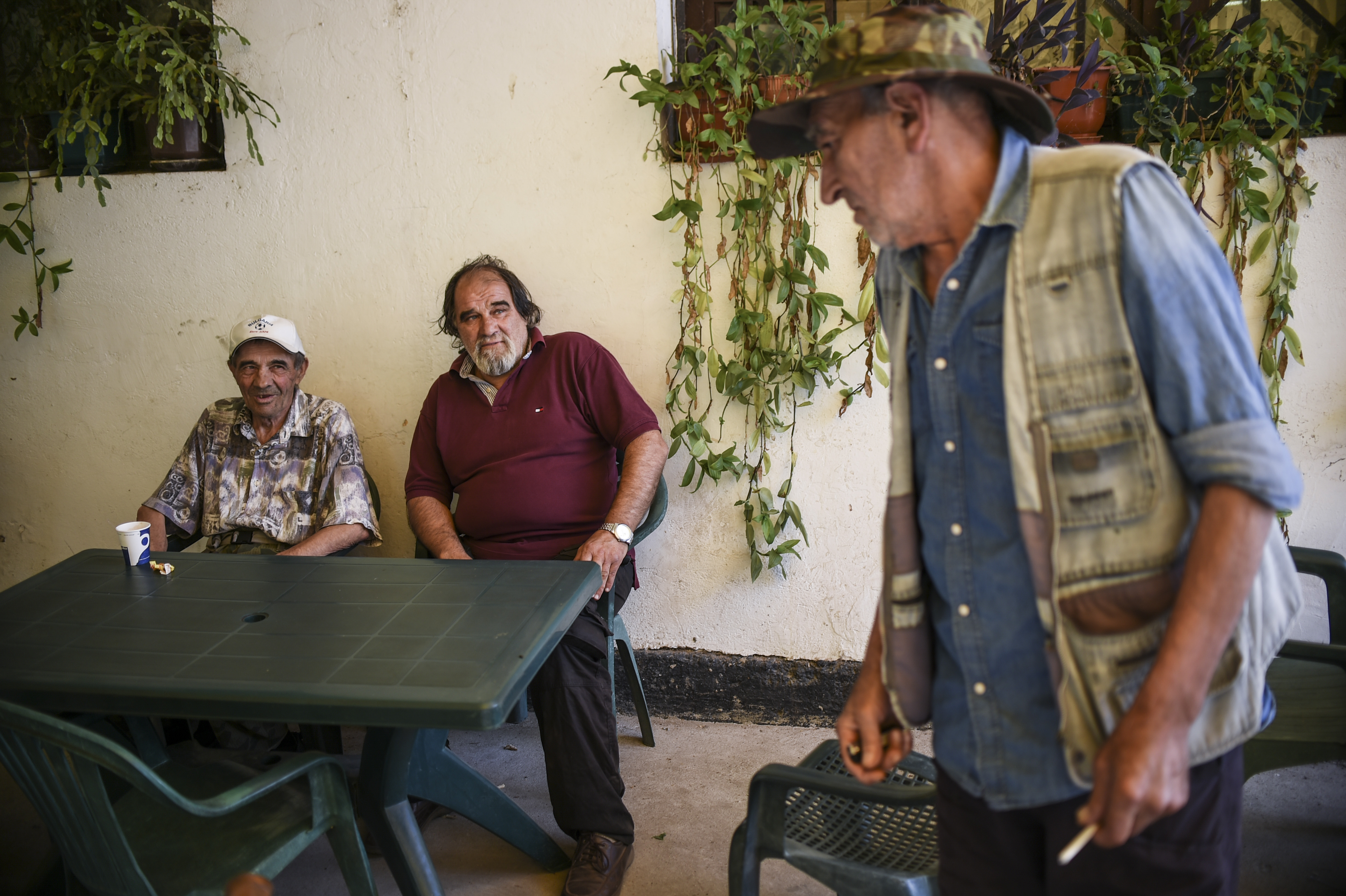
Roma families on the outskirts of Zalaszentgrót have been waiting years for their decrepit housing to be renovated. Photo: © Bea Bakó
So far, Fidesz seems to have steered clear of restricting opposition-held municipalities’ access to EU funds. Opposition politicians interviewed by BIRN said the central government had not blocked their funding, though they said it was often more generous towards Fidesz-controlled municipalities. “This might sound surprising, coming from me, but we basically have good co-operation with the Ministry of Finance, we’ve won many tenders for essential projects,” József Baracskai, from the left-liberal Democratic Coalition, told BIRN. For the last 10 years, Baracskai has been the mayor of Zalaszentgrót, a town of 6,000 people in western Hungary. On a recent tour of the town centre, he pointed out several buildings, including the town hall, that had benefitted from EU funding.
However, the relationship with Budapest had not been entirely smooth. Baracskai said the finance ministry had taken more than three years to process an application for an EU-funded project: the renovation of a building housing Roma families on the outskirts of Zalaszentgrót. The building lacks adequate sewage and heating – its inhabitants have been using wood furnaces to keep warm. Baracskai told BIRN that he had initially applied for a 400,000 euro grant in 2016 but the tender had only recently been approved. In the intervening period, he said, the estimated cost of the project had gone up.
Given the scale of the works now required, he said he was looking into re-housing the residents at a new property rather than upgrading their current home. A Roma woman at the site, who did not wish to give her name, said she would not choose to stay there even if the renovations went ahead. “You cannot have a normal life here, no matter how hard you try,” she told BIRN.
‘Evil EU punishing Hungarians’
While there is no indication that the Zalaszentgrót project was held up for political reasons, such delays underscore the extent to which local government schemes cannot advance without Budapest’s support, even where they have secured funding from the EU. According to analysts, if that funding were to be cut off, projects such as re-housing the Roma could fall by the wayside.
In the event of sanctions, the central government would probably divert funds to “important infrastructure projects”, continuing to pre-finance them through the central budget as far as it can afford to, Gergő Medve-Bálint, from the Centre for Social Sciences, told BIRN. “But in the case of smaller issues, like social inclusion in less favoured areas, that does not seem likely.”
It is however entirely likely that Fidesz will seek to make political capital out of any sanctions, using them to discredit the opposition and the EU. The mayors of opposition-controlled municipalities that lack the funds for completing projects could easily be portrayed as incompetent. Moreover, as Zoltán Vasali, a political scientist at the Idea Institute, a Budapest-based think-tank, told BIRN, the sanctions could be presented as the work of an “evil EU, punishing Hungarians for political reasons”.
The Finance Ministry in Budapest did not respond to BIRN’s questions about what it would do in the event of sanctions. Although the ministry has a state secretary overseeing the use of EU funds, a press officer at the ministry told BIRN in a phone call that the institution had no responsibility in the matter. There are further reasons to suspect that Fidesz will use financial levers to weaken the opposition if sanctions are imposed – based on its high-handed attitude towards local government in general and towards opposition-controlled local governments in particular. Since 2010, the central government has been steadily encroaching on the authority of local governments, taking over many of their functions. With fewer duties to perform, the municipalities have also had less money allocated to them.
Orbán, the EU and Hungarian public opinion
Hungarians seem well aware that the EU sends a great deal of money to their country, and largely for this reason, they also support membership of the bloc.
However, according to a poll by the progressive think tank, Policy Solutions, Hungarians also believe that a significant amount of EU funding is stolen or misspent in their country, and would prefer the EU to exercise stricter control over the use of its funds.
The poll suggests these views are held not just by Hungarians in general but also by a majority of Fidesz voters.
A separate poll, conducted by the IDEA Institute, found that 40 per cent of Fidesz voters support the view that the EU should suspend funding for member states that undermine the rule of law, and a further 27 per cent accepted that such measures should also apply to Hungary. Both these polls indicate that Fidesz supporters accept there is corruption within the party’s ranks but do not regard it as a decisive issue.
They echo a common refrain heard in village pubs: “Of course Fidesz steals, just like the Socialists did. But at least they care about the national interest and do not let in immigrants!”
Moreover, since the opposition triumph in the local elections of 2019, the central government has shown itself willing to divert money from its opponents. It recently passed a law authorising the central government to form so-called “special economic zones” which allow for taxes raised on municipal territory to be collected by county assemblies, a regional level of administration entirely controlled by Fidesz.
The measure was put to controversial use in the town of God, an investment hotspot that hosts a large Samsung factory. God’s opposition-led local government has complained that the creation of a special economic zone earlier this year had slashed its tax revenues by a third.
The opposition have described the zones as a political weapon but Fidesz has defended the policy, arguing that the zones allow for revenues to be redistributed fairly across towns and villages.
Lobbying for direct payments
Hungary’s opposition largely supports the prospect of EU sanctions against Orbán, despite the possibility of shortfalls in municipal budgets and a political backlash. This is partly a mark of the country’s polarisation under Orbán – his opponents are willing to risk anything for his removal.
The parties of the mayors interviewed for this story, Momentum and Democratic Coalition, dominate the opposition and routinely portray the EU as an ally of the Hungarian people in a domestic struggle against a corrupt and autocratic government.
Zoltán Vasali, the analyst from the Idea Institute, said it would be politically dangerous for opposition parties to change their minds about sanctions at this point. “They have to carry on insisting that suspending the funds is correct, and that it is not treasonous to support that,” he said. It may also be easier to speak in support of the sanctions while it is unclear if they will ever be imposed. The complex, prolonged nature of decision-making within the EU has left many politicians doubtful if any punitive measures will be adopted. József Baracskai, the opposition mayor of Zalaszentgrót, told BIRN, that even if a legal basis for sanctions were agreed, “it would take a long time and it would be hard to enforce”.
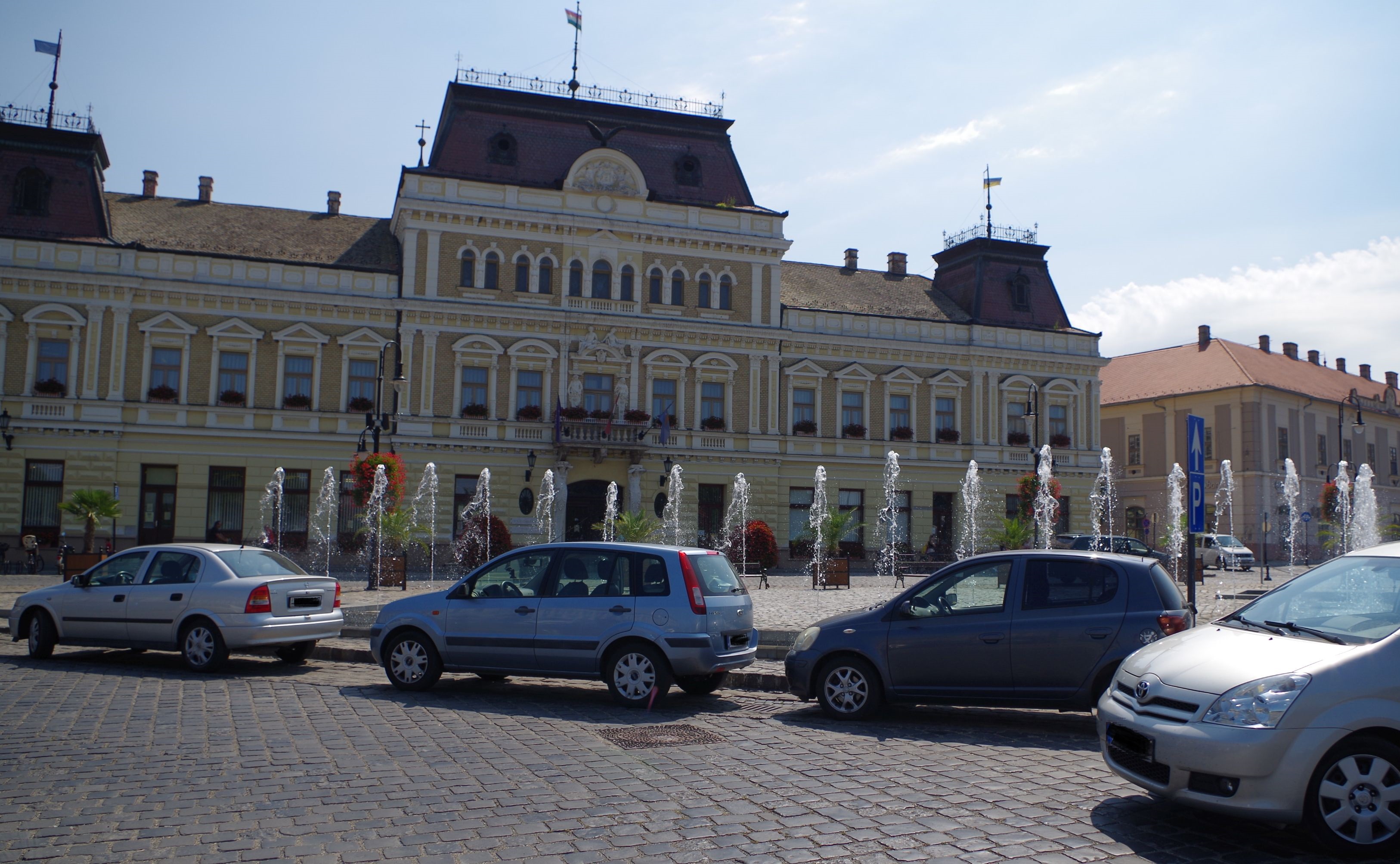
EU funds have paid towards the upkeep of the town hall in opposition-controlled Baja. Photo: © Bea Bakó
The view was echoed on the other side of the spectrum, where the attitude has been one of “business as usual”. The Fidesz mayor of the city of Székesfehérvár, András Cser-Palkovics, told BIRN that he had not received any official indication that a suspension of EU funds was a “realistic” possibility. To avoid losing their biggest source of project financing, some Hungarian opposition politicians have also placed their faith in the creation of an alternative system that would allow them to apply for grants directly from Brussels, bypassing Budapest.
“The financial punishment is basically a good idea,” the mayor of Baja, Klára Nyirati, told BIRN. She accepted that sanctions would reduce opportunities for corruption and wastage in large projects overseen by the central government. However, she said, “local governments should not be punished. Municipalities should be able to apply for funds directly.” In partial acknowledgement of local governments’ concerns, the European Parliament adopted an amendment last year that granted the chance to file a complaint to applicants who had been awarded funding but had not received it. However, it is unclear if this guarantee will survive the final stages of the negotiations to finalise the mechanism for sanctioning countries over rule-of-law violations.
The latest documents from the Council of the European Union – the European Union’s other legislative body, besides the European Parliament – make no reference to any guarantees. Moreover, even if this guarantee survives, it offers no reassurance to local governments that may be hoping to apply for EU grants if and when sanctions come into force.
The opposition has placed its faith in lobbying the EU. Last weekend, 31 opposition-led towns and cities across Hungary announced they would hold local referenda on the question of whether local governments should directly receive half the EU’s coronavirus recovery funds allocated for the country. Although this idea has the backing of dozens of other European cities, the outcome of such referenda is not binding on the Hungarian government or the EU and it is questionable if this form of pressure will sway Brussels.
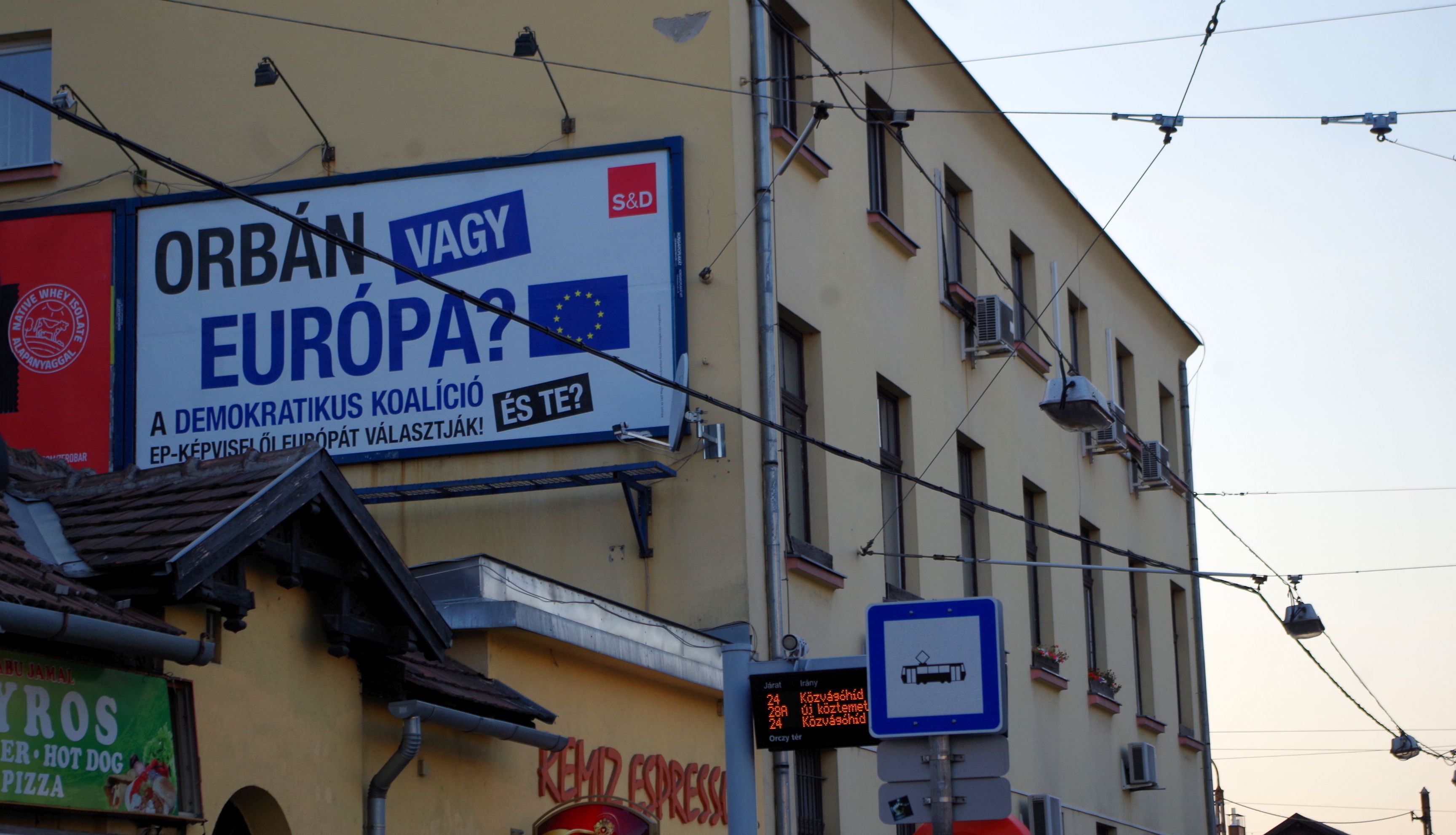
A Hungarian opposition poster asking voters to choose between Orbán and Europe. Photo: © Bea Bakó
Observers are doubtful that the EU will want to allow local governments to apply directly for funds, or indeed that it could handle the administrative burden of such a move. “Even if only one or two member states had their funding suspended, the European Commission would not have the capacity to manage [direct applications] because its bureaucracy is not as large as people imagine,” Gergő Medve-Bálint, from the Centre for Social Sciences, told BIRN.
Responding to this, an advocate of direct funding in the European Parliament, German Green MEP Daniel Freund, told BIRN that the additional administrative cost of the proposal would still be far less than the amount currently lost to corruption. If the EU were to create a channel for direct funding that bypassed the government in Budapest, Fidesz-controlled municipalities would technically have the same right to apply for money as their opposition rivals. Might this effectively negate the purpose of sanctions?
Zoltán Vasali, the analyst from the Idea Institute, believes not, arguing that Orbán’s party would still suffer a blow to its pride. “The government is hyper-sensitive about sharing each euro,” he said. “Losing control over any portion of the money may not topple the government but it will be a huge political defeat.”
Within the opposition camp, Socialist MEP István Ujhelyi said, the view of the EU swings between two extremes. One regards the EU as Orbán’s enabler because it has consistently failed to rein him in. Another regards the EU as a saviour because it is finally preparing to punish Orbán. “Neither view is accurate,” he told BIRN. “We have to resolve the political situation ourselves. We cannot wait for the EU to solve our problems for us.”
For now, it is likely that EU institutions will agree upon a mechanism for sanctioning rule-of-law violations. But it is far from clear how strict this mechanism will be, how hard will it be to enforce, and how – if at all – will it ensure that local governments are not deprived of their funding.
First published on 21 October 2020 on Reportingdemocracy.org, a journalistic platform run by the Balkan Investigative Reporting Network.
This text is protected by copyright: © Bea Bakó, edited by Neil Arun. If you are interested in republication, please contact the editorial team.
Copyright information on pictures, graphics and videos are noted directly at the illustrations. Cover picture: © BIRN / Sanja Pantić
This article was produced as part of the Fellowship for Journalistic Excellence, supported by the ERSTE Foundation in cooperation with the Balkan Investigative Reporting Network.